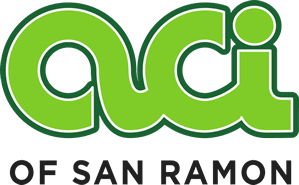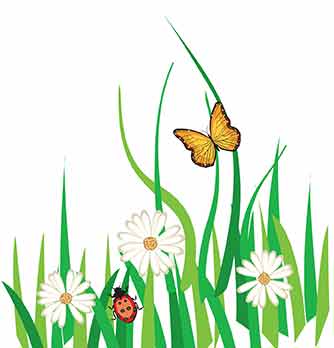
Senate Bill 1383
California’s Short-Lived Climate Pollutant Reduction Strategy Effective January 1, 2022
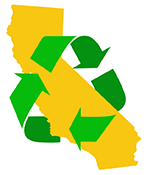 For more information regarding Senate Bill 1383, please visit: www.calrecycle.ca.gov/organics/slcp
For more information regarding Senate Bill 1383, please visit: www.calrecycle.ca.gov/organics/slcp
Click here for City of San Ramon SB 1383 Information and Resources.
In September 2016, Governor Edmund Brown Jr. set methane emissions reduction targets for California (SB 1383 Lara, Chapter 395, Statutes of 2016) in a statewide effort to reduce emissions of short-lived climate pollutants (SLCP). The targets must:
- Reduce organic waste disposal 50% by 2020 and 75% by 2025.
- Rescue for people to eat at least 20% of currently disposed surplus food by 2025.
California is implementing statewide organic waste recycling and surplus food recovery. Starting in January 2022:
- All jurisdictions will need to provide organic waste collection services to all residents and businesses and recycle these organic materials.
- Some businesses must donate edible food to food recovery organizations with others starting in 2024.
 Reducing organic waste in landfills = equals less methane. Organics like food scraps, yard trimmings, paper and cardboard make up half of what Californians dump in landfills. Organic waste in landfills emits methane, a climate super pollutant 84 times more potent than carbon dioxide.
Reducing organic waste in landfills = equals less methane. Organics like food scraps, yard trimmings, paper and cardboard make up half of what Californians dump in landfills. Organic waste in landfills emits methane, a climate super pollutant 84 times more potent than carbon dioxide.
Compost Helps the Environment!
Compost is organic material that can be added to soil to help plants grow. Food scraps and yard waste together currently make up more than 30 percent of what we throw away and could be composted instead. Making compost keeps these materials out of landfills where they take up space and release methane, a potent greenhouse gas.
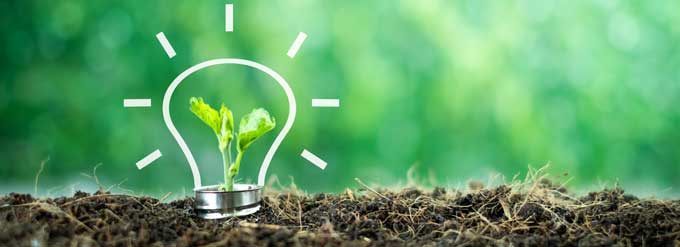
Mixing compost into your soil!
- adds valuable nutrients to your soil, acting as a natural slow – release fertilizer for plants and microbes.
- reduces the need for pesticides and synthetic fertilizers.
- enriches soil and promotes healthy plant growth (more fruit and vegetables—tastier, too!)
- helps to regulate and neutralize the acid and alkaline levels in you soil.
- saves water: nutrient rich soil requires less irrigation.
- healthy root growth in you garden means less erosion.
- plants grown in compost-amended soil tend to be more resilient to diseases, pests, and fungi.
Do your part. Keep the green stream clean.
Only place items that were once alive into the Organics collection containers. The material is taken to a facility to create compost.
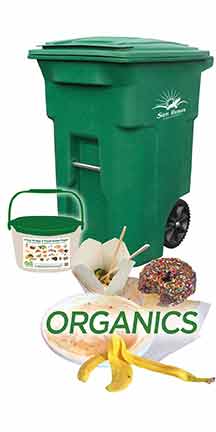
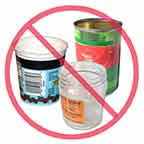
- PROPER SORTING MAKES A DIFFERENCE. Food scraps and food-soiled paper belong in your ORGANICS containers. Click here for more food scrap tips.
- AVOID CONTAMINATION. Plastic, metal, and glass do NOT belong in the green ORGANICS containers.
- THANK YOU FOR YOUR EFFORTS! For a comprehensive list of what belongs in your collection containers, scan the QR code on your containers, or visit www.sanramonsort.com.
Create A Green Gardening Routine.
Help protect our environment and promote healthy soils with sustainable landscaping, gardening, and yard management practices. Click for composting and sustainable gardening information, tips, and resources for Contra Costa County.
